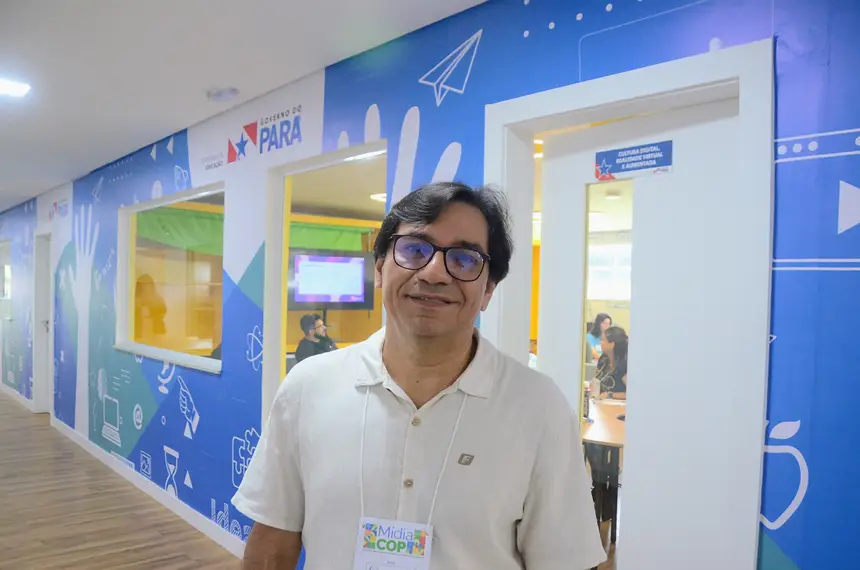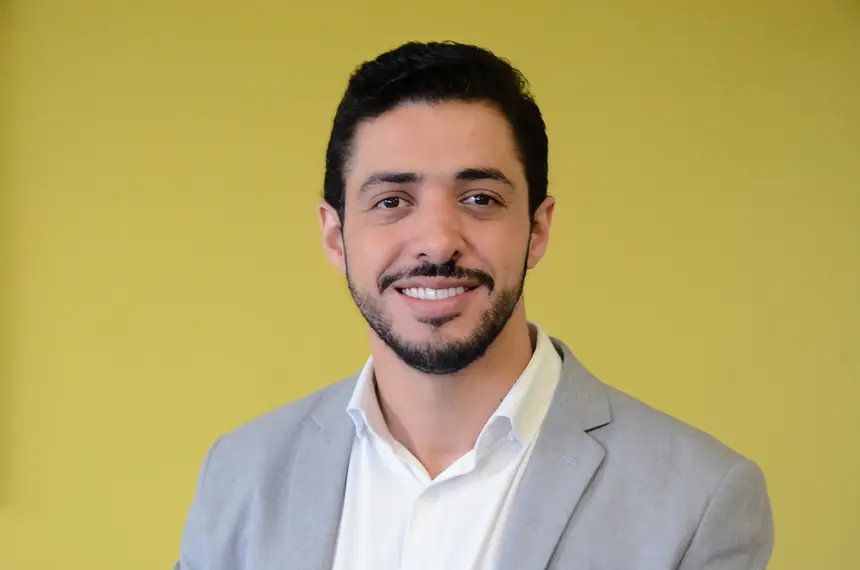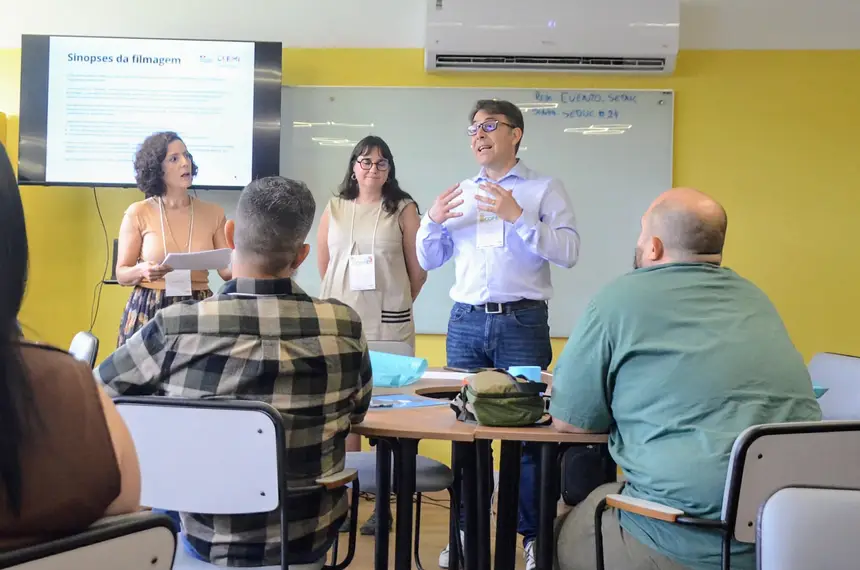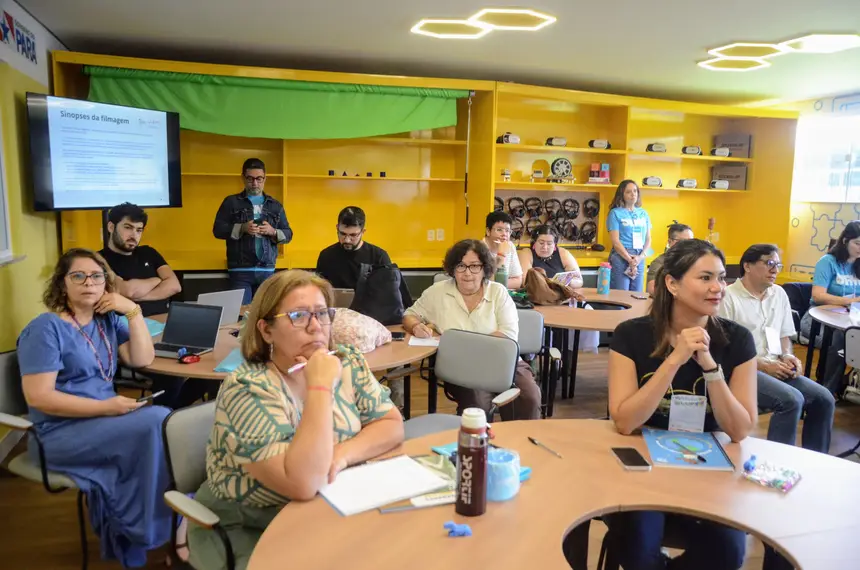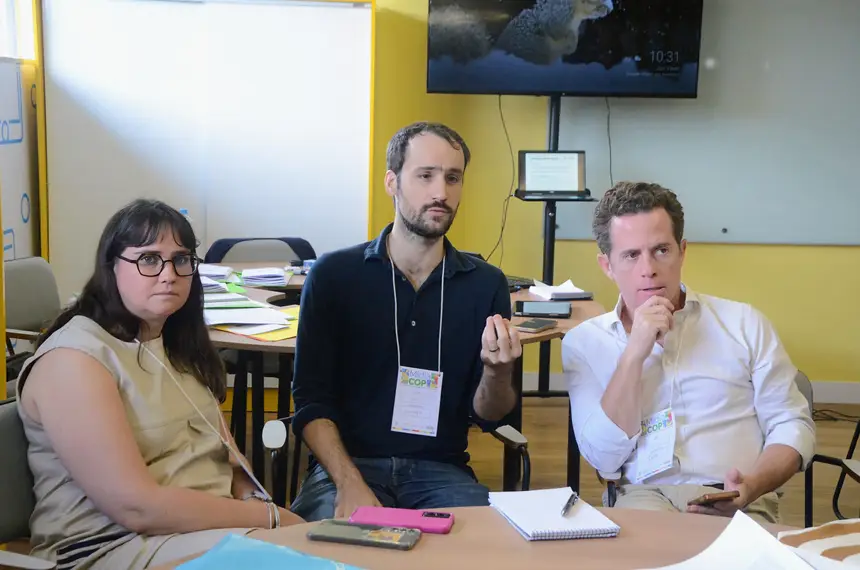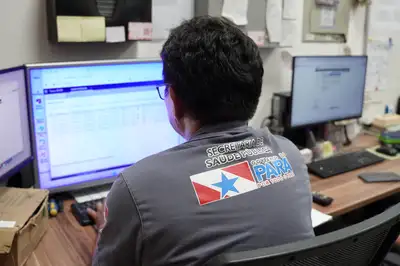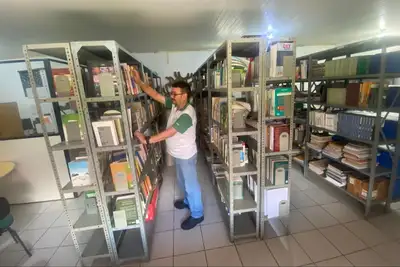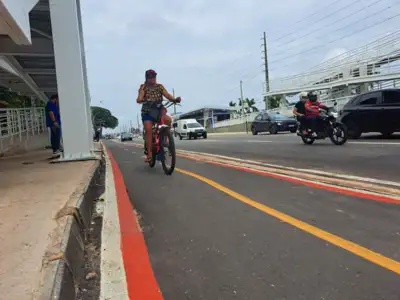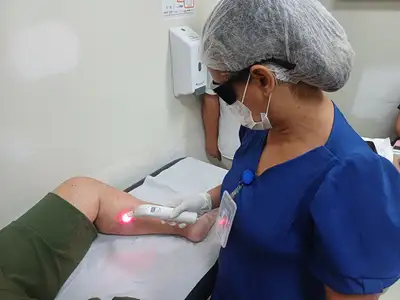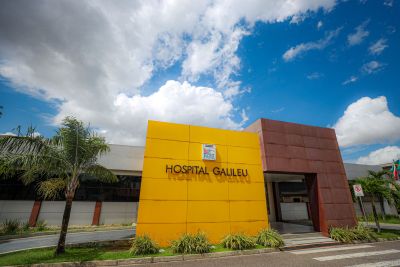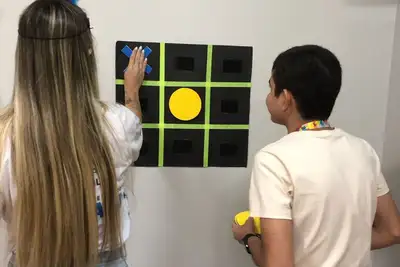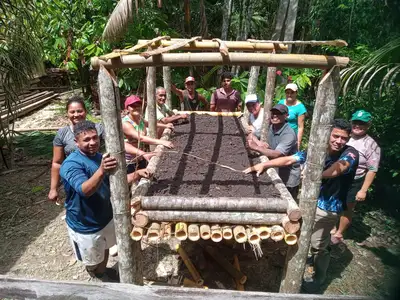In partnership with France, state network educators participate in training on Media and Environmental Education for COP30
Summary
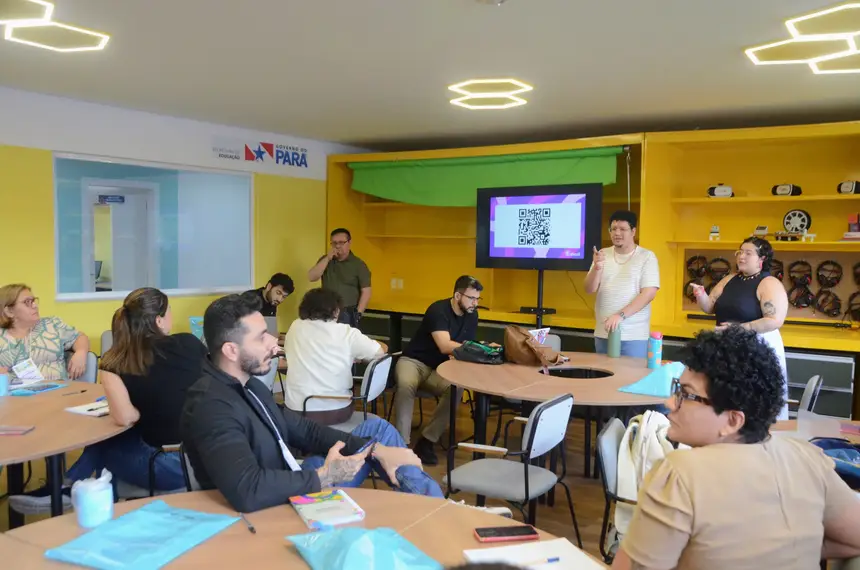
Education professionals from the state network participated in the MediaCOP Training – Media and Environmental Education, a joint initiative of the Ministry of Education (MEC), the Social Communication Secretariat of the Presidency of the Republic (Secom), the French Government, through the French Embassy in Brazil, and the Centre pour l’Éducation aux Médias et à l’Information (CLÉMI), with technical support from the Federal University of Mato Grosso do Sul (UFMS). The event, which began this Wednesday (14) and runs until Friday (16), is being held at the Center for Innovation and Sustainability in Basic Education (Ciseb), at the Marechal Cordeiro de Farias State School in Belém.
"Seduc is a partner in this action of the MEC in conjunction with the embassy and the French government, as Pará will be the stage for the world by hosting COP30 this November in Belém. Beyond that, education is the main transformative agent and should be at the center of climate and environmental discussions. So, we are welcoming here today teachers from our state network and from the entire northern region of the country to learn more about digital media education," said Rossieli Soares, Secretary of State for Education of Pará.
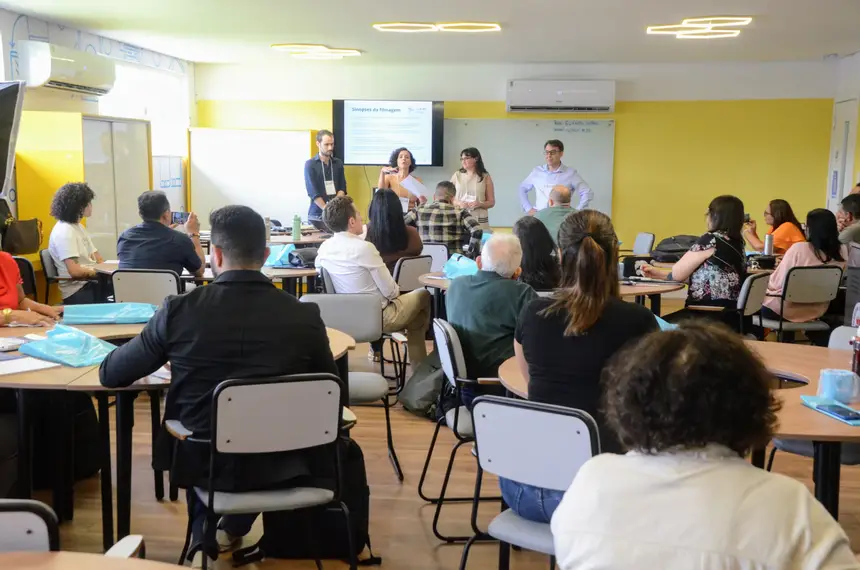
During the opening of the event, David Almansa, director of the Department of Rights in the Network and Media Education of the Presidency of the Republic, highlighted the strategic importance of the initiative in the context of COP30 and the fight against misinformation.
“President Lula is concerned that COP30 leaves a legacy for the Brazilian nation. In this context, we have an important commitment to communication aimed at defending and protecting the environment, especially in light of the climate change scenario. Therefore, we developed a project in partnership with the French government to train teachers from the Northern Region of the country in digital media education, an approach that teaches how to use different media, such as the internet, audio, and video, to promote ethical communication and information integrity,” explained Director David Almansa from the Department of Rights in the Network and Media Education of the Presidency of the Republic.
The goal of the training is to empower educators to become multipliers in their home territories, developing pilot projects and pedagogical materials focused on environmental education with a media approach. The produced content will be adapted to the local reality and replicated in the school communities of the Amazon region.
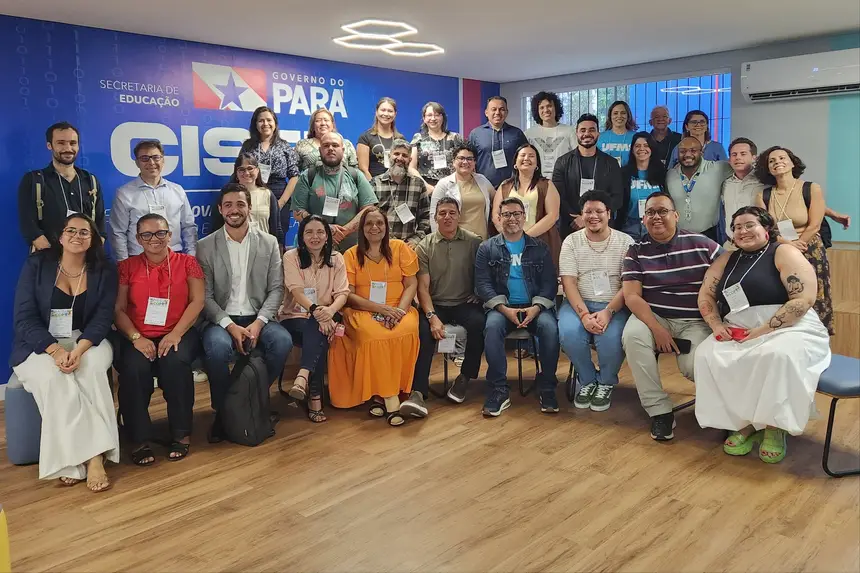
“Today's course focuses on the use of media, which are increasingly important in today's society, especially with the internet and cell phones. If teachers do not know how to use these tools correctly, problems such as misinformation and fake news can arise. It is essential to teach students to produce and share videos ethically, respecting morality and citizenship,” stated Aderilson Parente, a teacher at the Cordeiro de Farias State School.
During the program, participants will learn both the technical aspects of producing media content in schools, such as creating podcasts, videos, and newspapers, as well as the necessary foundations to address environmental themes through communication.
“The proposal is for teachers to acquire both theoretical knowledge on how to address environmental issues with students and the technical skills to produce materials such as audio, video, podcasts, and other visual content. We also want to encourage students to engage with school journalism, an essential field for developing skills such as critical analysis of information,” highlighted Mariana Filizola, General Coordinator of Media Education at the Presidency of the Republic.


